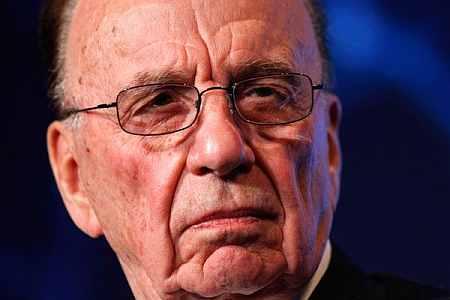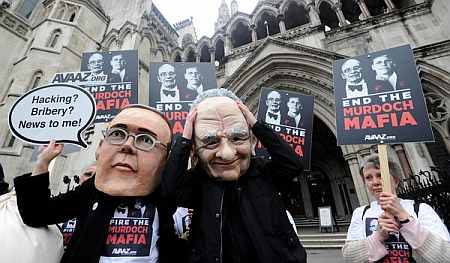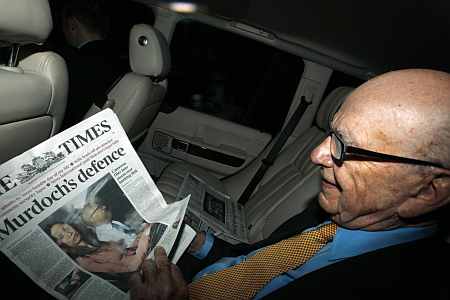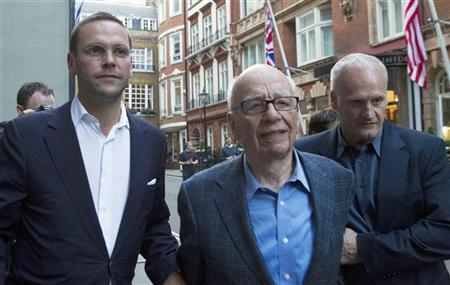 | « Back to article | Print this article |
Murdoch's lessons for India's state and media
For more than 40 years, ever since he took over The Sun, Australian-American businessman Rupert Murdoch's media empire has expanded almost unchecked. To all appearances, he is the quintessential modern media mogul, who can make and break governments, set the public agenda, and buy storied newspapers almost at a whim.
Even the scandal that broke last year surrounding illegal phone-tapping by some of his employees, especially at the London tabloid News of the World, seemed at first to be distant from the rarefied heights Mr Murdoch occupied.
But the United Kingdom's Parliament had other ideas. They summoned Mr Murdoch and his son, James -- who ran the British end of the business -- to explain their part in the scandal.
A transfixed international television audience saw a man who, instead of being the keen-eyed micro-manager of legend, was apparently quite out of touch -- and happy to let ethical transgressions take place as long as he knew nothing definite about them.
Click NEXT to read more...
Murdoch's lessons for India's state and media
The report of the parliamentary select committee that interviewed Mr Murdoch is now out. It is unexpectedly damning, saying that both Messrs Murdoch showed "wilful ignorance" of phone-tapping, and that the senior Mr Murdoch was "not a fit person" to steer an international media empire.
The report may not be voted on in its entirety by the House of Commons, as it was not unanimous; members of the committee belonging to the Conservative Party, which has had close ties to Mr Murdoch since the Thatcher era, voted against it.
Yet it is a landmark not just for the Anglophone media, but in the history of the fraught relationship between the media and government globally.
Click NEXT to read more...
Murdoch's lessons for India's state and media
With this report, the British political class has put its noisy media on notice: if any of its powerful owners step over the line of law or custom, no degree of political connections will stop the state from pushing back, hard.
And, in doing so, they might well go beyond accustomed boundaries, too -- for example, in calling someone "unfit to steward an international business empire".
Whatever Mr Murdoch's errors of judgement, it is difficult to see how the determination of his fitness to lead a business is the province of a legislature.
Click NEXT to read more...
Murdoch's lessons for India's state and media
That judgement should primarily be made by his shareholders; or, if they fail to check illegality, through a well-defined legal process based on settled law.
This holds with extra strength for the media, which serves as an essential check on the powers of the three branches of government. Neither the legislature nor the executive nor the judiciary should, abroad or in India, attempt to directly influence the working of what serves, in essence, as a fourth pillar of liberal democracy.
Recent attempts to control or leash the media in India, if successful, will end up being even more dangerous than whatever may have provoked them. It is important, therefore, for the media to learn from Mr Murdoch's mistakes.
Click NEXT to read more...
Murdoch's lessons for India's state and media
In creating a media empire that, through its very size and interconnectedness, largely insulated itself from any accountability, Mr Murdoch made it a target -- and the rest of the industry with it.
In associating his businesses with the ability to skew and shape political narratives, Mr Murdoch allowed control of his empire to become the province of politics, rather than of the market.
Would-be Indian Murdochs should take note: they will likely not be allowed Mr Murdoch's four decades. And the Indian state may not be as restrained in response as the British state has been.





